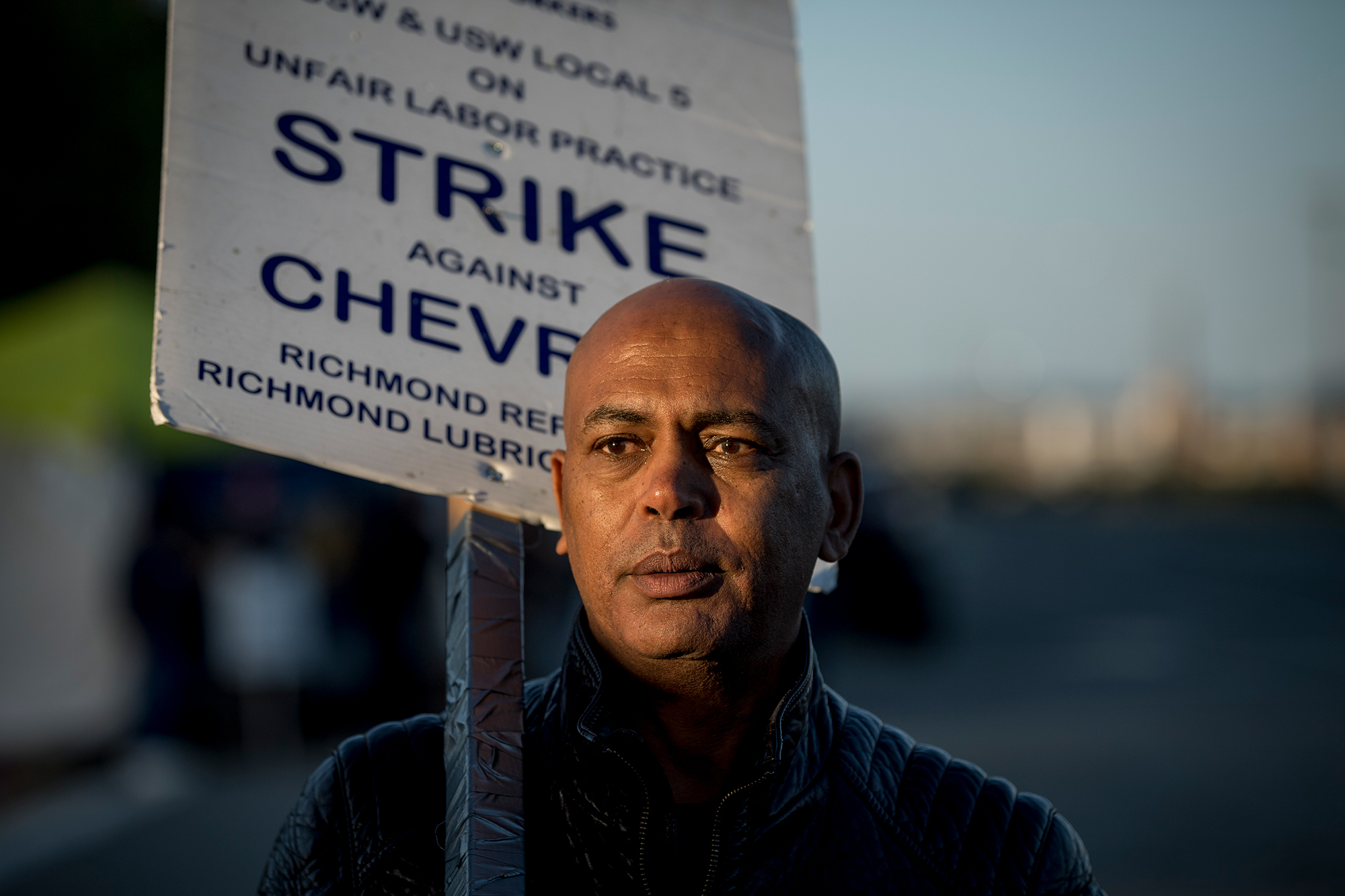
Image Source: Featured on Capital and Main. Photo by Karl Nielsen / Greenpeace
When Greenpeace boats formed a “floating picket” to support striking Chevron workers in Richmond, CA, one of those aboard was Tefere Gebre, until February the executive vice president of the AFL-CIO and now chief program officer at Greenpeace USA. Gebre described Greenpeace’s support for refinery workers as “a genuine attempt to build a transformational relationship” with the striking workers.
In an interview published May 16 in Capital and Main, Gebre explains how he sees the relationship between the environmental movement and the labor movement:
In 2017, I had my first child, who’s now 5 years old, and she brought a lot of things into perspective for me. I’m worried sick that if things continue the way they are, I’m never going to see her graduate from high school or college. I just felt like she was going to hold me accountable.
I also know that the workers’ movement is going to be crucial in actually solving this problem. We have been fed wrong choices and wrong narratives for years. Either we have to take good paychecks, family-sustaining paychecks, or choose to breathe clean air. I don’t think that’s a choice.
Also, for ages, people like myself have imagined the environmental movement to be a movement for upper-middle-class white people. But I grew up in Los Angeles. I know the asthma corridor in Los Angeles — the 110 freeway which leads to the ports. Those are little Black and brown kids, who have nothing to do with polluting the environment. They are born with asthma. I want the environmental movement to actually be their movement, driven by them and led by them.
Eight years ago, 13% of Greenpeace’s staff was BIPOC [Black, Indigenous and people of color]. Today, it’s 52%. It is by design. In a real way, they want to do equity and inclusiveness. I’m the first immigrant and Black man they ever had in a leadership position.
Gebre was asked “How are you going to build the partnership between labor and the environmental movement?”
I’m going to talk directly to fossil fuel workers, those who work at the refineries, and those who work to actually take the oil out of the ground. I want them to actually imagine a better life for themselves, and explain that the environmental movement — at least Greenpeace — is not against them. We’re with them. We’re against the people who take advantage of them at work and would take advantage of their community, and pollute our environment.
Here’s the core of it. There ain’t going to be any jobs on a dead planet. And I think the more workers understand that the more they are willing actually to look at the longer view of this.
For full interview: https://capitalandmain.com/why-labor-leader-tefere-gebre-has-brought-his-organizing-talents-to-greenpeace